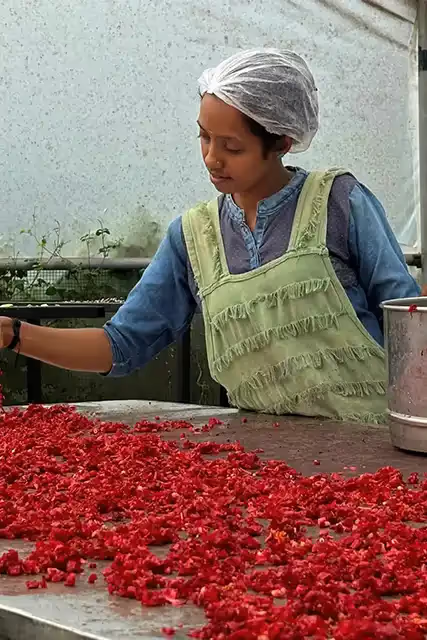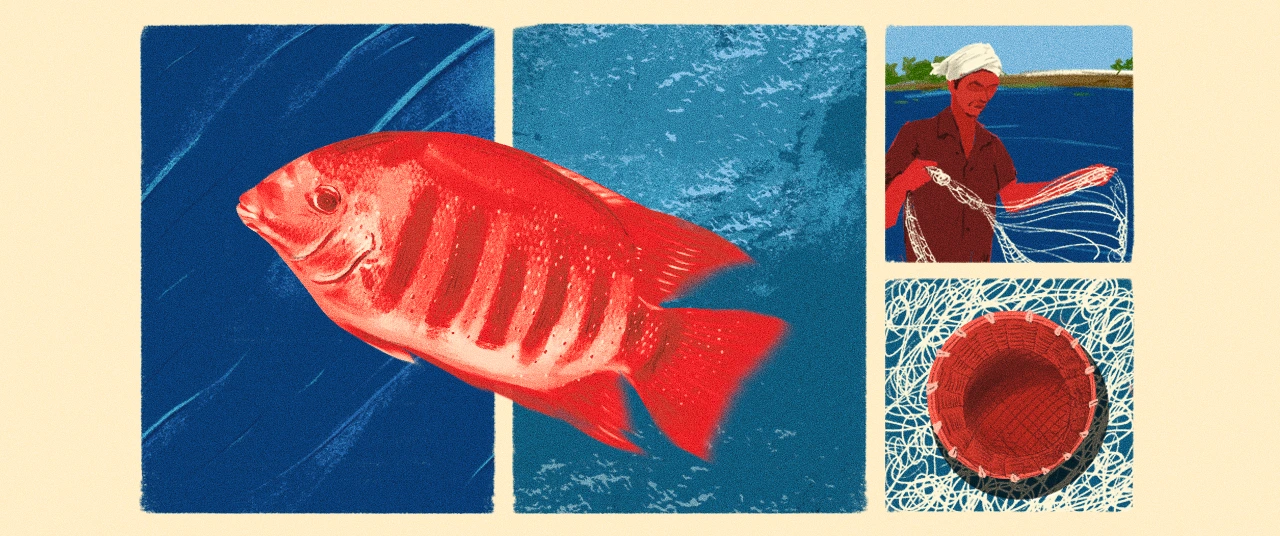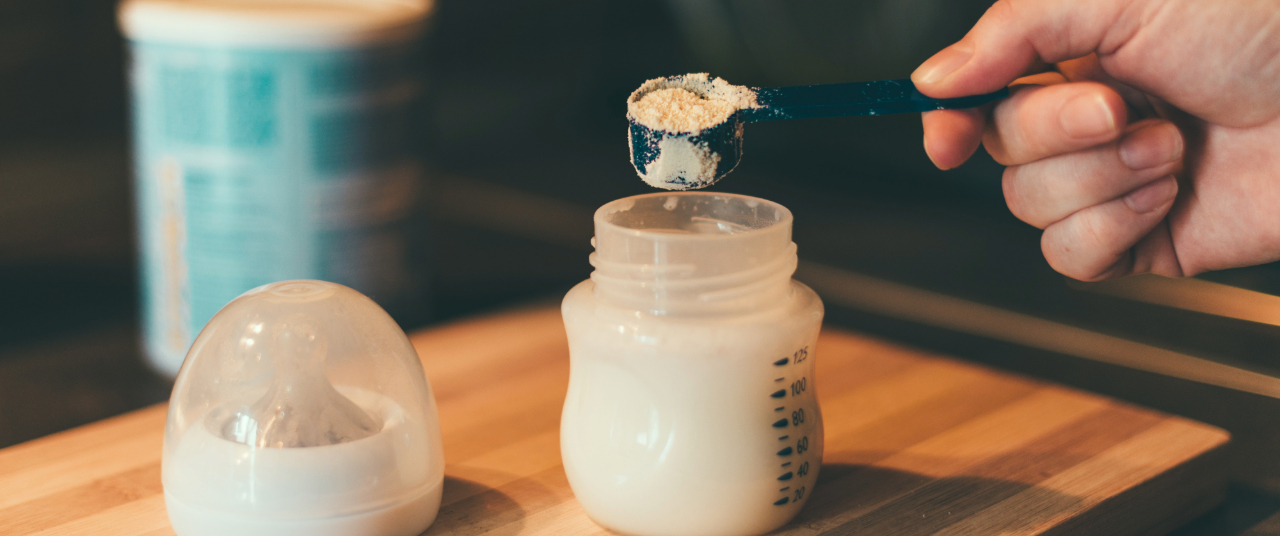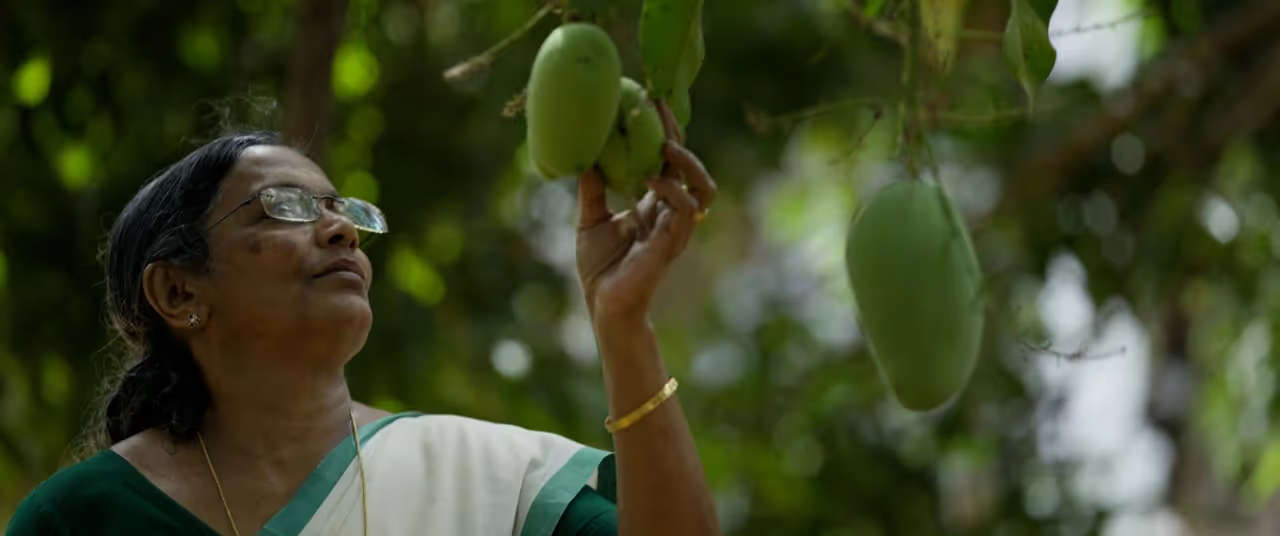The collective turns hibiscus and butterfly pea flowers into teas and jams






Farmer's Share, located on the banks of Nila River in Shoranur, Kerala, is more than a farm – it's a working example of how people and nature can live in harmony. Started in 2017 on a 10-acre leased plot, this space has become a hub for permaculture and traditional crafts.
Here Ambrose Kooliyath, his wife Mini Elizabeth, and their two sons, Amal and Akhil are quietly working towards their dream of creating a self-sustaining community by practising different crafts like hand spinning, weaving, natural dyeing, pottery, architecture, papermaking, soap making, food processing and baking.

Ambrose, who served as the Ernakulam district secretary of Gandhi Yuva Mandal, was instrumental in the Swasraya Vypin initiative, which aimed to make the island of Vypin self-reliant. Following this, he and his associates founded "Grasshopper," a naturopathy restaurant in Ernakulam. Ambrose's journey then led him to Bangalore, where he launched the Lumière Organic Project. It was during this period that he, along with like-minded individuals, established Farmer's Share in Shoranur.

Gram Swaraj
Farmer’s Share is a trust that includes a variety of individuals with different backgrounds and skills including Manoj IB, an environmental activist; Sachu Muralidharan, who focuses on mindfulness practices; Meera, who works with nature; Kavya George, who runs the handmade paper-making unit of Farmer’s Share; and Rashid Ahmed and Sasi Memuri, who are both artists.
The collective is grounded in the principles of Gram Swaraj, a concept that advocates for the self-reliance of villages and localities in governance, livelihoods, and the production and distribution of resources. The collective constantly experiments with new ideas to support eco-friendly living.
There is a danger that looms over every society. We’ve lost the education that instils responsibility towards local resources
“As a collective, we strive to make products that add value to our social lives,” says Ambrose Kooliyath. “The quality of a product depends on the producer’s understanding of social, economic, and environmental issues. Our vision is a self-sufficient society built on meaningful transactions and ready for positive change.”
Ambrose believes the society has become too disconnected from local resources with the rise of the monetary system. “There is a danger that looms over every society. We’ve lost the education that instils responsibility towards local resources,” he says.
“Money doesn’t provide security – it’s a misconception. Happiness comes from limited consumption, and despite the challenges, I believe it’s possible to turn a village into a self-sufficient community where people control their own lives.”
Value-added products
Today, many farmers struggle because they can't control the prices of their crops. But by making value-added products, they can set their own prices and gain some financial stability.

"I’ve been working with Farmer’s Share since its early days. Ambrose asked for a range of crops like ginger, turmeric, pepper, yam, banana, mango, and jackfruit. Now we’re also growing hibiscus and butterfly pea to meet their needs. I get much better prices for my products than I would in the regular market, and sometimes we trade goods instead of money. If every village had a project like Farmer’s Share, farmers like me could lead more dignified lives," says Paul KJ, an organic farmer from Kolezhi, Thrissur.
In India, there are countless opportunities to create value-added products. For instance, fruits that are often wasted could be turned into wine with 2-3% natural alcohol. Unfortunately, state governments often stop these efforts by citing current laws.
Innovations
Farmer’s Share offers a diverse range of (around 50) food products, including value-added items made from hibiscus and butterfly pea flowers. These plants are not only easy to cultivate but also require minimal water. With a lifespan of three to four years, they provide a reliable and sustainable source of income for farmers.
Both hibiscus and butterfly pea flowers are used to create sarbath. Unlike the synthetic options available in the market, Farmer’s Share offers two natural varieties of sarbath made from these flowers. The drinks come in vibrant red and blue, blended with Naruneendi (Indian Sarsaparilla) and sweetened with palm jaggery, making them healthier and more natural.
The white and blue varieties of butterfly pea flowers and hibiscus are used to make jam and tea pellets. The jam is made by mixing the flowers with pulped white gourd. Tea pellets come in nearly seven flavours, including cinnamon, cardamom, dried ginger, and mint. They have also experimented with incorporating drumstick leaves into the tea pellets and exploring the use of pollen in cookies and soap. Another unique product is honey infused with the essence of these flowers.
Seasonal fruits like mango and jackfruit, as well as vegetables and yam, are transformed into various products using coconut vinegar.
{{marquee}}
Health benefits
Hibiscus is packed with vitamin C and supports your immune system. It aids digestion, helps restore balance, and has anti-aging benefits. In Ayurvedic medicine, butterfly pea is valued for its ability to boost memory, reduce stress, and act as a natural antidepressant. Its high antioxidant levels help fight fatigue and energise you.
"I have been using Farmer’s Share products such as hibiscus tea, hibiscus jam, coconut vinegar, turmeric pickle, orange vinegar, and Shankupushpam-Nannari concentrate for over four years. I believe the secret to their incredible taste lies in the way they are processed, with complete dedication and a genuine desire to create the best. The hibiscus tea, in particular, is incredibly refreshing for both my mind and body," says Satish CJ, a retired KSEB engineer from Ernakulam.

Sustainable model
Ambrose believes farmers can easily market their value-added products independently, setting their own prices. These products can be made manually, requiring minimal technology investment, which makes them an accessible option for farmers looking for sustainable livelihoods. Initially, Farmer’s Share relied on exhibitions for marketing, but they have now moved to online platforms to save on the high costs of physical events.
I don’t want to develop a centralised system that relies on external resources; we cultivate the flowers we need on our own premises
“People visit us and get inspired, but instead of producing their own value-added products, they ask if I could buy their flowers. They are not interested in the production process. I am not focused on the exponential growth of this enterprise but would rather see small groups engage in similar activities to support their lives. We can provide the knowledge for others to produce value-added products from their harvests, allowing them to create their own unique blends and flavours. I don’t want to develop a centralised system that relies on external resources; we cultivate the flowers we need on our own premises,” says Ambrose.
Processing
After harvesting, the flowers are dried in a dryer for about two days. Sun drying is avoided to keep their vibrant colour. To prevent hibiscus flowers from fading, they are sprayed with lemon juice. Once dried, the flowers can be stored for up to six months before being turned into final products.
The dried flowers are then ground into powder to make tea pellets. For sarbath, a herbal decoction is prepared, and the necessary flavours are added.
The final products are packaged in glass bottles. However, there are challenges due to the lack of suitable glass bottles and caps for canning without preservatives. Many bottle tops do not meet the required standards, which increases the risk of water or air entering the bottles during canning, potentially causing spoilage before the expiration date. This issue can affect marketing, as complaints about a few defective bottles might lead to concerns about the quality of the entire batch.
No patent
Farmer’s Share is a movement towards a more sustainable and thoughtful way of living. By producing value-added products, the collective empowers farmers to set their own prices and reduces their dependence on fluctuating markets.
I have not sought a patent for my innovations, nor do I see the need for one. I believe that knowledge should be freely shared, not restricted by patents, which I consider a form of injustice
"Arangottukara Krishi Patashala and Farmer’s Share have had a long-standing relationship, exchanging products and services. Farmer’s Share takes rice, ragi, and fruits from us, and we, in turn, purchase their vibrant, flavorful, and aromatic products. I believe the quality of these products reflects the values held by the producers. We are happy to sell our produce to someone who truly cares about human well-being and the sustainability of nature. What makes the relationship special is not just the eco-friendly products, but also the simple and transparent atmosphere of the centre. Occasionally, we are even invited to organise cultural programs and theatre performances," says KV Sreeja, who is part of the Patashala near Pattambi.
And with its commitment to eco-friendly practices, Farmer’s Share is helping shape a future where small, self-sustaining communities can thrive. “I believe human beings can learn from their mistakes and return to the right path. Humans are creatures of hope and optimism, capable of creating a new world order through conviction and clarity,” says Ambrose.
“I have not sought a patent for my innovations, nor do I see the need for one. I believe that knowledge should be freely shared, not restricted by patents, which I consider a form of injustice,” he adds.
Explore other topics
References

%20copy.avif)




%20copy.avif)




%20copy.avif)




%20copy.avif)







.avif)






